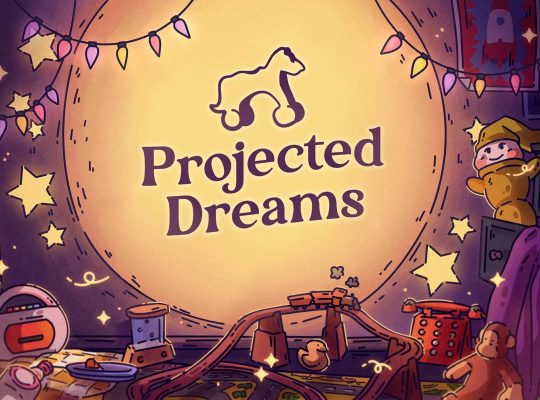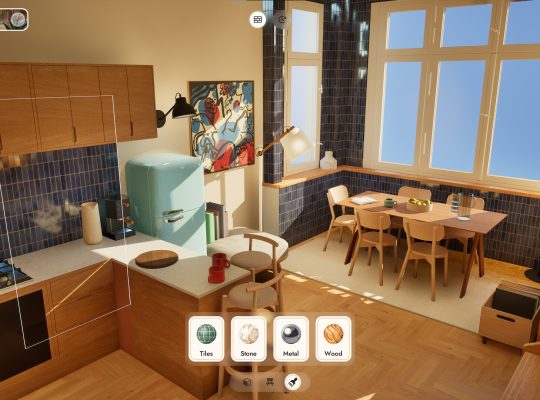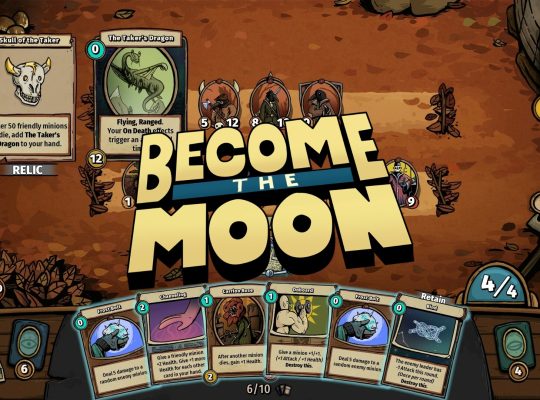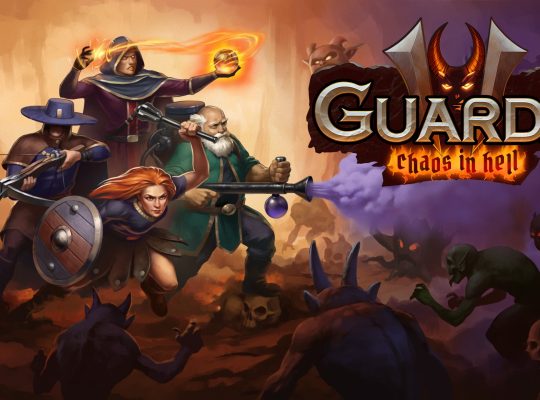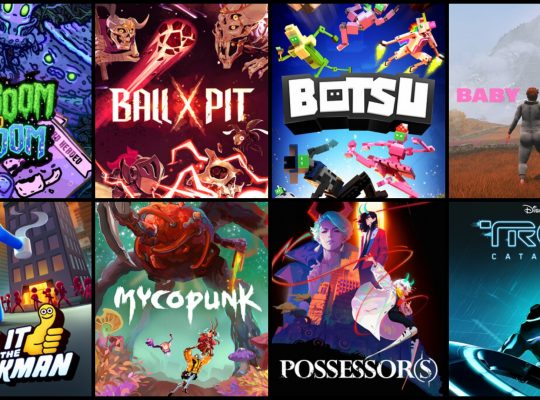- DEVELOPER: Pollard Studio
- PUBLISHER: Wired Productions, Gamera Games
- PLATFORMS: PC, PlayStation 5
- GENRE: Psychological thriller
- RELEASE DATE: March 27, 2025
- STARTING PRICE: 24,99€
- REVIEWED VERSION: PC
KARMA: The Dark World is a psychological thriller inspired by the strange worlds of David Lynch, the complex stories of Christopher Nolan, and the dark themes of George Orwell’s 1984 book. Made by Pollard Studio, a small Chinese team, and built in Unreal Engine 5, which makes the game look incredible, while setting it in a twisted, nightmarish world. You play as Daniel McGovern, an agent who works for a powerful, controlling government. His job is to enter people’s minds to find crimes before they happen. But what starts as a simple case soon turns into a confusing web of lies, love, and lost memories, where nothing is what it seems. While the game has strong moments and a bold vision, some parts don’t work as well as they should.

Walking Through a Cinematic Mindscape
KARMA plays more like an interactive movie than a traditional game. It follows the “walking simulator” style with light puzzles. As Daniel, you use special tech to enter people’s memories, moving through strange, dream-like versions of offices, hospitals, and other locations. The focus is on three things: exploring environments, interacting with objects, and solving simple puzzles. There’s no map or guidance, the game expects you to observe carefully and piece things together yourself, creating a slow, thoughtful pace.
The puzzles naturally fit into the narrative, serving as obstacles that push you forward. Some are simple, like finding a key in a drawer, while others require more effort, such as unlocking a lock using clues from the environment. Most have logical solutions, and if you observe carefully, finding the answers will never be too difficult, even if you get lost. In fact, in some situations, you might need to align symbols on a box or listen to a recording to retrieve a code.
However, some puzzles can be frustrating not because they’re hard, but because of how they work. One later puzzle asks you to match symbols in a room that keeps changing, but moving is slow and the game doesn’t tell you when you’re doing it right. Another tricky one uses a coded box where the clues are hidden in lore items you might skip. These parts might annoy those who don’t like guessing or rechecking areas, especially since there are no hints to help.

The game’s simple design has good and bad sides. You can’t fail or run out of time, which lets you focus on the creepy atmosphere. But the gameplay stays basic, mostly just walking and clicking. The puzzles align well with the narrative, though they may feel overly simplistic for players seeking a greater challenge. The game really depends on its story. If you like the plot, this works fine. But if you don’t, there’s not enough gameplay to keep you interested.
Besides slow-paced exploration, the game also includes scripted chase sequences that suddenly shift the thoughtful pace into an adrenaline-fueled rush. These moments occur when Daniel, or the person whose memories he’s exploring, encounters terrifying creatures. You might face a giant monster with a television for a head or a dark beast made of fragmented memories. One of the most intense chase scenes happens while playing as Sean Mehndez, a researcher with only one leg. As you try to escape through an office, his limp slows you down, heightening the sense of panic throughout the entire sequence.
A Tangled Web of Symbolism
KARMA takes place in a twisted version of 1984 East Germany. In this dark world, the all-powerful Leviathan Corporation watches everyone constantly. They use drugs to control people’s minds and promise a perfect society, but only to those who obey without question. What starts as a simple case soon becomes much bigger, involving spies, hidden family truths, and questions about what’s real.

Story actually moves between 1966 and 1984, switching between different characters’ viewpoints. When Daniel enters people’s memories, it becomes hard to tell what really happened and what’s just in their minds. It deals with big ideas like control, who we really are, and dealing with loss. It gets strange, you’ll see officials with TVs for heads, endless paperwork that shows how bureaucracy works, and mysterious speeches from “Mother”, the company’s ever-present voice.
The plot has surprising twists (think Christopher Nolan’s movies) and hints at alternate realities. You can also feel George Orwell’s influence in how the government watches everyone. Some scenes really stand out; when a memory suddenly changes from a crazy dream to cold reality, showing how the character’s mind works. But, the story tries to do too much. It’s full of symbols, such as watching eyes and red rooms with blood-colored curtains, which often feel confusing rather than meaningful. My biggest gripe is how the middle section moves too slowly, with some scenes repeating for too long.
The game’s visuals are truly impressive
The game’s strongest suit is its presentation. Unreal Engine 5 flexes hard here, with Lumen lighting and Nanite geometry crafting a world that’s both photorealistic and surreal. You’ll see East Germany’s harsh, gray buildings with flickering lights, then suddenly shift into wild memory worlds, like oceans under stars or rooms that melt away. Character models, enhanced by motion capture, are detailed, especially Daniel’s hands. The visual shift from oppressive reality to psychedelic memories is seamless, making every scene a feast for the eyes.

Music and sound effects are just as good as the visuals. The soundtrack mixes orchestral music with original songs, creating tension or sadness when needed. Clever sound details like faraway echoes, fuzzy voices, and the sound of stamping papers make everything feel more unsettling. Voice acting is strong overall, especially Jack Ayres as Daniel, who perfectly sounds lost and desperate. Sadly, some side characters aren’t as memorable.
A game that not everyone will like
When KARMA works well, it’s really powerful. It creates a heavy, tense mood, looks absolutely stunning, and has some unforgettable story moments, for example, when you slowly uncover a character’s painful past. It’s an impressive first game from Pollard Studio, showing they have strong creative ideas and technical skills. But the gameplay is very simple, maybe too simple. There’s not enough to actually do to match the game’s movie-like style.
It’s the kind of game you respect more than truly enjoy. If you enjoy strange, dream-like stories (David Lynch films), dark futuristic worlds, or experimental games, you might find it fascinating, as long as you don’t expect perfection. Others may feel lost, like they’re solving a beautiful puzzle with missing pieces. It doesn’t completely succeed, but its boldness stands out compared to safer, more predictable games. Even with its flaws, it’s interesting enough to try.
| Pros | Cons |
|---|---|
| Visually impressive game. | There's no real gameplay. |
| Very good soundtrack and horror elements. | The story is quite confusing. |
| Interesting premise. | Pretty slow gameplay. |
| Atmospheric world. | Sometimes it feels more like a movie than a game. |
Review copy provided by the publisher
3.3




